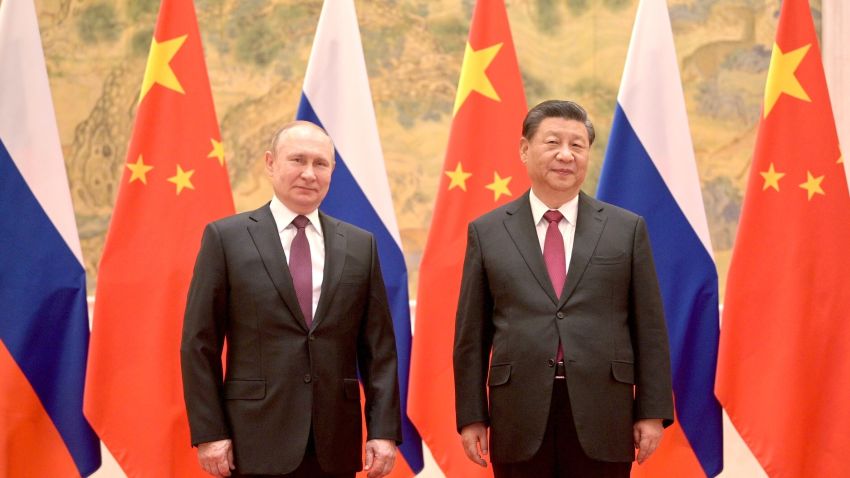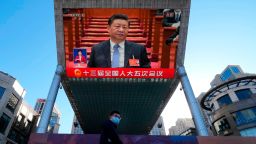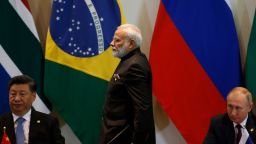On a regular day, they’re lawyers, software engineers and blacksmiths. But this week, they donned military fatigues, fired assault rifles at numbered targets, and marched long distances in full military gear – all to prepare for a possible attack by China’s military.
The 400-odd men were some of Taiwan’s reservists, the first to face a new, stringent 14-day training schedule – up from the previous seven days – introduced by the government this month to boost the island’s combat readiness.
Analysts say the tougher training schedule, among other moves, show how seriously Taiwan is taking the threat of a possible Chinese invasion – and those fears have only heightened recently, with some drawing comparisons between Russia’s brutal invasion of Ukraine and the potential existential threat to Taiwan.
Beijing has dismissed the similarities though the ruling Chinese Communist Party has repeatedly vowed to “reunify” with the self-ruling island of 24 million people – by force if necessary – despite having never governed it. Beijing has also stepped up its military pressure on Taiwan, including sending a record number of warplanes last year near Taiwan, which is fewer than 124 miles (200 kilometers) from China’s southeastern coast.
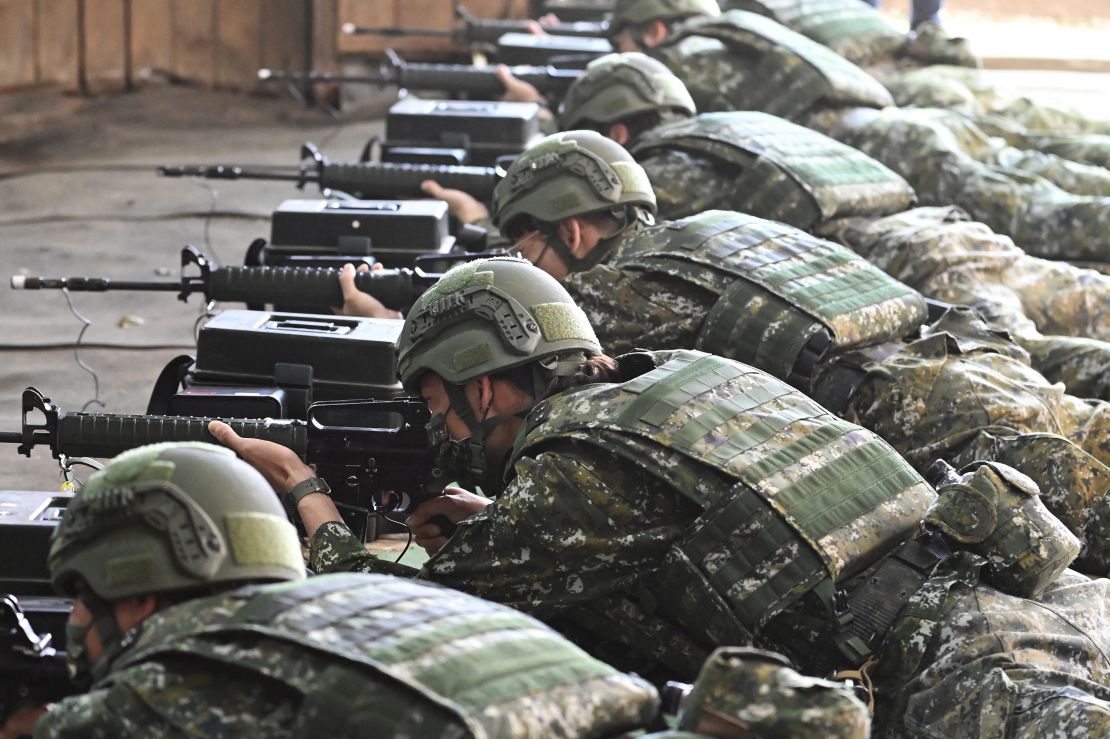
This month’s strengthened military training has already drawn the ire of Beijing, with China’s Taiwan Affairs Office calling the move a “provocation.”
“It is very dangerous for them to go on like this,” spokeswoman Zhu Fenglian said in a regular briefing in Beijing Wednesday, referring to Taiwan’s ruling Democratic Progressive Party. “(They) do not hesitate to tie people in Taiwan to the tank of separatism and push them into an abyss of disaster.”
But while the increased training appears to have angered Beijing, military analysts and lawmakers warn that it won’t be enough to fend off a potential onslaught from one of the world’s most powerful militaries. And although the war in Ukraine is happening half a world away from Taiwan, it has ignited debate on the island over what Taiwan’s government can do to prepare.
What is Taiwan doing?
Even before Russia launched its unprovoked attack on Ukraine last month, fears had been growing that Beijing could take Taiwan by force.
In the last few months, Beijing has been conducting combat readiness drills near the island – including regularly flying military aircraft into Taiwan’s air defense identification zone, as well as conducting joint air and naval exercises around the Taiwan Strait, Chinese state media reported.
Taipei responded by committing a record amount of defense spending this year, and an additional $8.7 billion over the next five years to boost its asymmetric warfare capabilities – a term for military strategies to counter much more powerful militaries – including developing new long-range missiles that can target China’s military facilities in the event of war.
The island’s government is also looking to bolster the size of its military ranks – with 160,000 personnel in its all-volunteer professional ranks, Taiwan’s military is less than one-tenth the size of Beijing’s People’s Liberation Army, though it also has more than 1 million reservists it could call up, if needed.
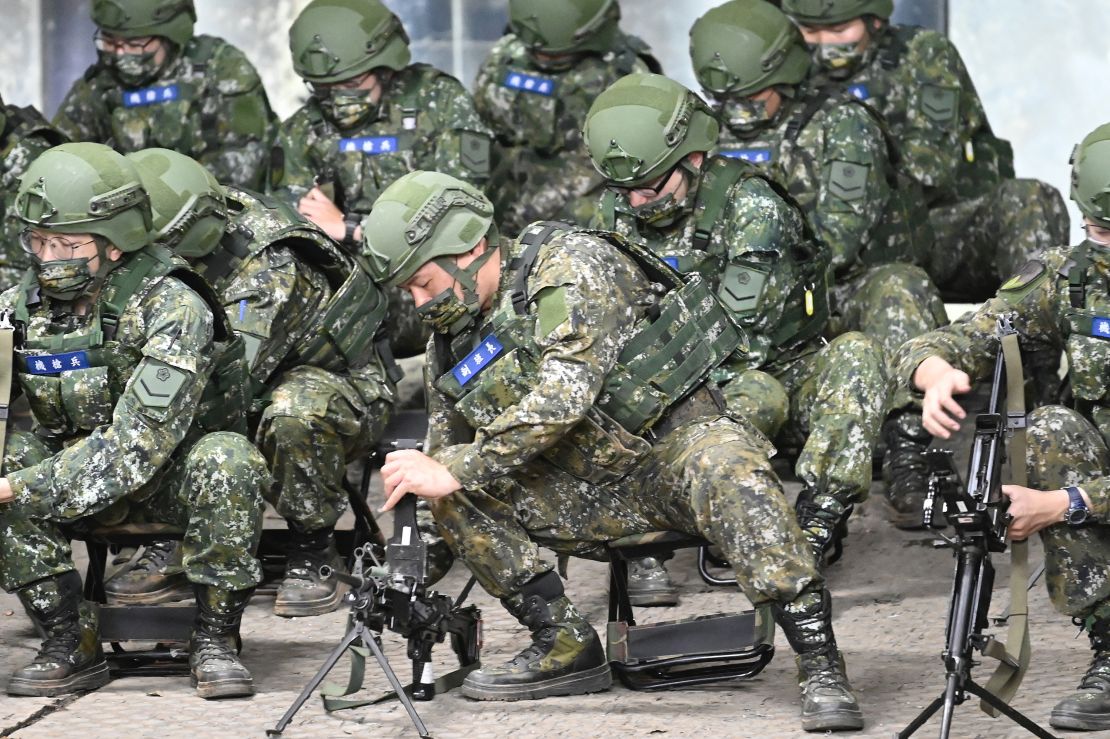
President Tsai Ing-wen has indicated these reserve forces could be an important part of Taiwan’s defenses in the event of an invasion, drawing parallels to Ukraine where the government armed regular people to help protect its cities as Russian forces invaded.
“The recent situation in Ukraine proves that, in addition to international support and assistance, it boils down to the unity of our people to safeguard our country,” Tsai said during a training inspection Saturday.
“This training mission implements the spirit of all-out defense,” she added. “Every reservist … has to assume that war could happen in their hometowns.”
The “all-out defense” initiative aims at elevating the general military knowledge in Taiwan, therefore making it possible to mobilize the general public should the situation require it.
Under current rules, all eligible Taiwanese men between the ages of 19 and 36 are required to undergo four months of mandatory military training.
When they’re done, some join the reserve forces, which commits them to extra training, like the 14-days exercises reservists joined this week.
Taiwan has not revealed how its reserves would be allocated among its ground, naval and air forces, other than to say they would be called upon based on their areas of expertise.
This new training regime is aimed at dispelling fears reservists aren’t prepared for combat, but military experts say what’s really needed is a longer mandatory training period.
Chang Yan-ting, a former deputy commander of the Taiwan’s air force, told CNN four months of mandated training is “totally inadequate.”
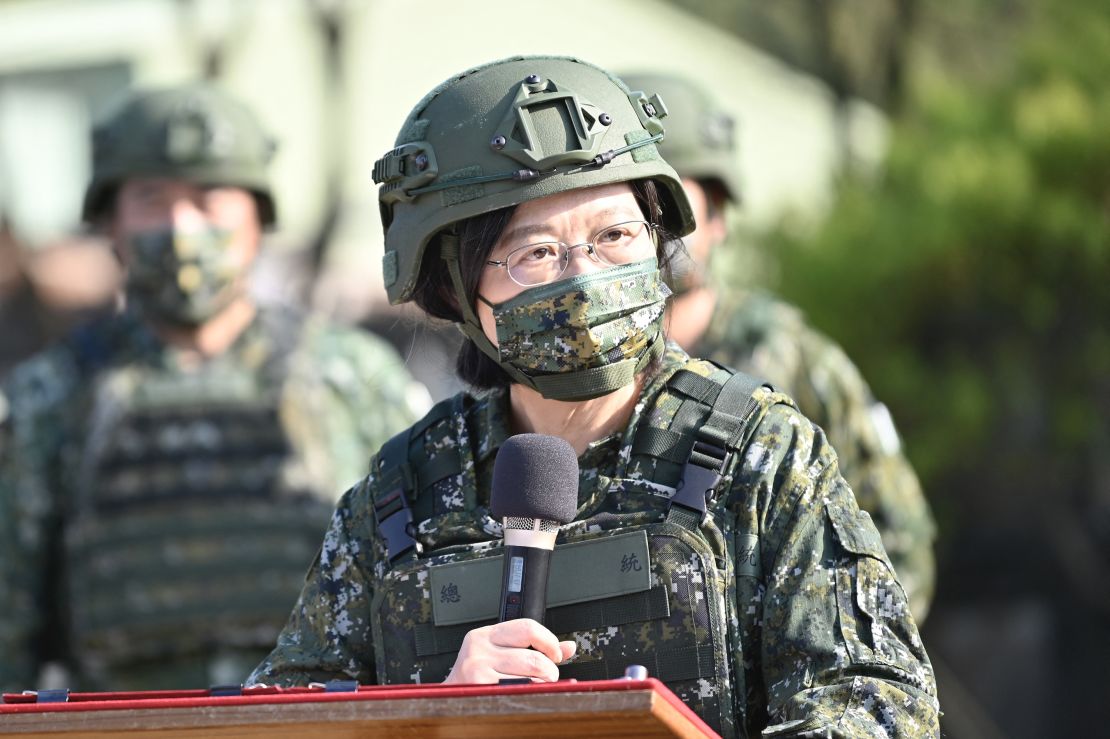
Is Taiwan doing enough?
He’s not the only one. Last week a number of legislators across the political divide called for Taiwan’s compulsory training period to be extended, citing the need to form a viable reservist force.
Wu Sz-huai, a lawmaker from the opposition Kuomintang party, said eligible men in Taiwan should be required to undergo one year of military training – a return to the previous requirement, which was shortened to four months from 2018.
The New Power Party, the fourth-largest party in Taiwan that often sides with the Tsai’s Democratic Progressive Party, also called for women to be included in non-combat training programs, particularly military logistics.
Taiwan’s presidential office told CNN on Sunday that authorities are evaluating whether they should extend the island’s compulsory military training, following a local media report that President Tsai personally instructed the Defense Ministry to consider the possibility after witnessing the way civilians had mobilized in Ukraine.
Chang, the former deputy commander of Taiwan’s air force, said there was an “urgent need” to lengthen the compulsory military training in Taiwan – perhaps even longer than a year.
“We must update our military strategy, including extending our conscription period so that we can properly teach them how to position themselves in the event of war, and how they should operate anti-tank missiles and other equipment,” Chang said.
J. Michael Cole, a Taipei-based senior fellow with Global Institute Taiwan, said the island must step up its military capability and prepare for any contingencies.
“The developments in Russia demonstrate the assumptions that autocratic leadership will always make rational decisions have been thoroughly destroyed by Vladimir Putin – in his decision to invade Ukraine,” he said.
“It does not mean that Xi Jinping will tomorrow decide to use force against Taiwan because his friend in Moscow decided to do so against Ukraine,” he said. “But it makes it evident that there is a possibility – however slim – that autocratic regimes could decide for their own calculations, their own reasons to use force against a democratic country.”
The lessons from Ukraine
Beijing has rejected comparisons between Taiwan and Ukraine, with China’s ambassador to the United States writing in a Washington Post opinion piece this week that observers are wrong to compare the two.
“The future of Taiwan lies in peaceful development of cross-Strait relations and the reunification of China,” Qin Gang wrote. “The Taiwan question is a Chinese internal affair. It does not make sense for people to emphasize the principle of sovereignty on Ukraine while hurting China’s sovereignty and territorial integrity on Taiwan.”
Experts agree there major differences between Russia’s attack on Ukraine and how any invasion of Taiwan by China could play out.
Unlike Ukraine, Taiwan is an island, meaning Beijing would likely have to launch one of the largest amphibious assaults in history. A potential invasion would also likely draw a regional response, thanks to Taiwan’s close physical proximity and importance to Japan, which is just 62 miles (100 kilometers) from Taiwan.
And Taiwan is a global leader in the supply of semiconductor chips, which is needed to power everything from smartphones to cars, so an invasion would likely result in ripple effects across the entire world.
“This changes how the international community will calculate their response to the threat of, or the invasion against Taiwan,” Cole said.
Even so, there are lessons that can be drawn from the situation in Ukraine to help Taiwan prepare, say analysts.
“The lesson from Ukraine is clear,” said Chang, the former deputy commander of Taiwan’s air force. “We have to be responsible for defending our own country.”
CNN’s John Mees and Will Ripley contributed reporting.

